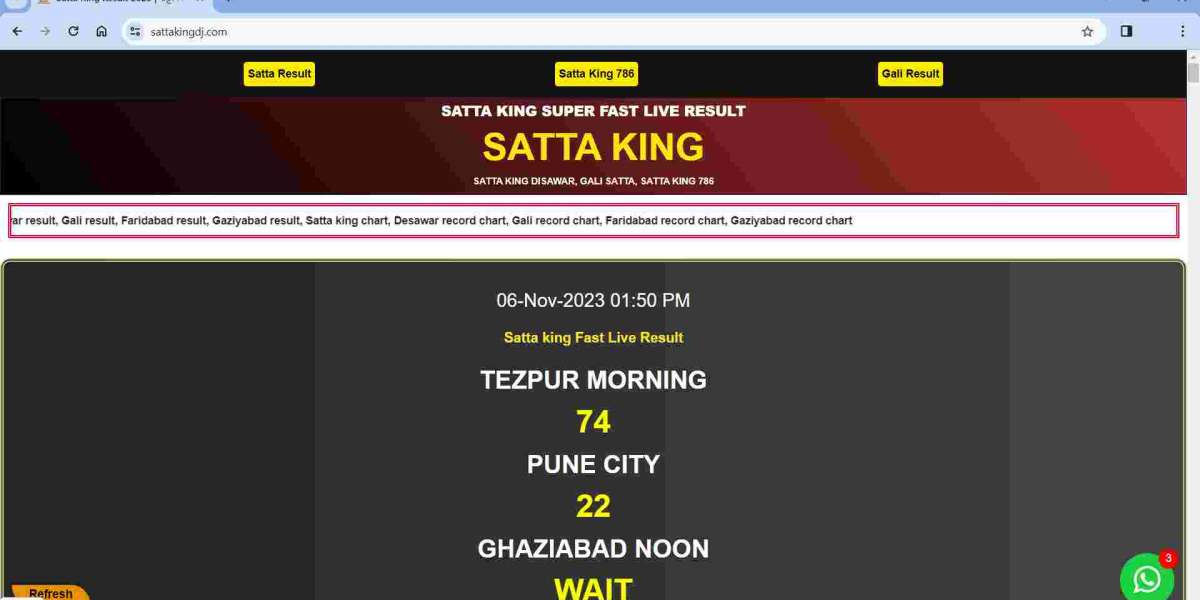Salesforce Marketing Cloud (SFMC) is a powerful platform, capable of orchestrating complex customer journeys, delivering personalized experiences, and driving significant marketing ROI. However, unlocking its full potential often requires the expertise of a skilled consultant. Hiring the right SFMC consultant can be a game-changer, transforming your marketing efforts from reactive to proactive and highly effective. Conversely, a misstep in the hiring process can lead to wasted resources, missed opportunities, and a frustrating implementation experience.
In the bustling digital landscape of the USA and across the globe, businesses are increasingly recognizing the value of SFMC. But just as you wouldn't entrust the intricate details of the Hawa Mahal's architecture to an untrained hand, you shouldn't approach hiring an SFMC consultant without careful consideration. This article delves into five critical mistakes to avoid when seeking a Salesforce Marketing Cloud expert to guide your marketing endeavors.
Mistake #1: Focusing Solely on Technical Proficiency Without Assessing Business Acumen
It's tempting to prioritize a consultant who boasts an impressive array of SFMC certifications and a deep understanding of its technical intricacies. While technical expertise is undoubtedly crucial, focusing solely on this aspect is a significant oversight. A consultant who can expertly navigate Automation Studio, Journey Builder, Email Studio, and other SFMC modules is valuable, but their impact will be limited if they lack a strong understanding of your business objectives, target audience, and overall marketing strategy.
Imagine hiring a brilliant architect who designs a stunning building without understanding the purpose it needs to serve or the needs of its occupants. Similarly, an SFMC consultant who operates in a vacuum, without grasping your business goals, may implement technically sound solutions that don't align with your marketing vision or deliver the desired outcomes.
Why Business Acumen Matters:
- Strategic Alignment: A consultant with business acumen can understand your overarching marketing goals and translate them into effective SFMC strategies. They can help you identify how SFMC can best support your customer acquisition, retention, and engagement efforts.
- Understanding Your Audience: They can analyze your target audience, their behaviors, and preferences to design personalized journeys and relevant content within SFMC.
- ROI Focus: A business-savvy consultant will constantly evaluate the impact of their work on your bottom line, ensuring that your SFMC investment delivers tangible results.
- Effective Communication: They can communicate technical concepts in a way that non-technical stakeholders can understand, fostering better collaboration and buy-in across your organization.
- Long-Term Vision: They can help you build a scalable and sustainable SFMC strategy that evolves with your business growth.
How to Avoid This Mistake:
- Ask Scenario-Based Questions: During the interview process, present real-world business challenges and ask candidates how they would leverage SFMC to address them. This will reveal their ability to think strategically and apply their technical knowledge to business problems.
- Inquire About Their Experience with Similar Industries/Businesses: Understanding their past experience with businesses like yours can provide insights into their understanding of your specific challenges and opportunities.
- Assess Their Communication Skills: Pay attention to how clearly and concisely they explain complex concepts. Can they articulate the "why" behind their recommendations, not just the "how"?
- Seek References That Highlight Strategic Contributions: Don't just ask about technical implementation; inquire about instances where the consultant helped drive business results.
Mistake #2: Neglecting to Thoroughly Evaluate Their Experience and Portfolio
Just as you'd scrutinize the credentials and past work of a lawyer or a doctor, it's crucial to rigorously evaluate the experience and portfolio of a potential SFMC consultant. Relying solely on certifications or generic claims can lead to disappointment. A consultant who has successfully navigated complex SFMC implementations and delivered measurable results for other businesses is far more likely to do the same for you.
Why Experience and Portfolio are Critical:
- Proven Track Record: A strong portfolio demonstrates tangible evidence of their capabilities and the impact they've had on previous clients.
- Familiarity with Different SFMC Modules and Use Cases: Their experience will likely encompass various SFMC modules and use cases relevant to your needs, such as email marketing, automation, mobile marketing, advertising studio, and customer journey orchestration.
- Problem-Solving Skills: Past projects often highlight their ability to overcome challenges and find creative solutions within the SFMC environment.
- Industry Best Practices: Experienced consultants are typically well-versed in industry best practices and can help you avoid common pitfalls.
- Understanding of Integration Challenges: They will likely have experience integrating SFMC with other systems in your tech stack, such as your CRM, e-commerce platform, and analytics tools.
How to Avoid This Mistake:
- Request a Detailed Portfolio: Ask for specific examples of their past work, including the scope of the projects, the SFMC modules utilized, the challenges faced, and the results achieved.
- Seek Case Studies and Testimonials: These provide valuable insights into their working style, communication skills, and the satisfaction of their previous clients.
- Inquire About Their Experience with Projects of Similar Scale and Complexity: Ensure they have a proven track record of handling projects comparable to yours.
- Don't Be Afraid to Ask for Demonstrations: If possible, request a brief demonstration of their capabilities within the SFMC platform.
- Verify Their Certifications: While not the sole indicator of expertise, valid SFMC certifications demonstrate a foundational understanding of the platform.
Mistake #3: Underestimating the Importance of Communication and Collaboration Skills
An SFMC consultant, no matter how technically brilliant, will be ineffective if they cannot communicate clearly, collaborate effectively with your internal teams, and understand your needs. The implementation and ongoing management of SFMC require seamless communication between the consultant, your marketing team, IT department, and potentially other stakeholders.
Imagine trying to build a complex structure with an architect who doesn't listen to your requirements or communicate their plans effectively. The result would likely be a disjointed and unsatisfactory outcome. Similarly, a consultant who operates in isolation or fails to keep you informed can lead to misunderstandings, delays, and a solution that doesn't truly meet your expectations.
Why Communication and Collaboration Are Essential:
- Clear Understanding of Requirements: Effective communication ensures the consultant fully grasps your needs, goals, and expectations.
- Seamless Integration with Your Team: Strong collaboration fosters a productive working relationship and ensures knowledge transfer to your internal team.
- Timely Updates and Feedback: Regular communication keeps you informed of progress and potential roadblocks and allows for timely feedback and adjustments.
- Shared Vision and Ownership: Open communication promotes a shared understanding of the project goals and fosters a sense of ownership.
- Long-Term Partnership: Clear and consistent communication lays the foundation for a successful and long-lasting partnership.
How to Avoid This Mistake:
- Assess Their Communication Style During Interviews: Pay attention to how clearly they articulate their ideas, how well they listen to your questions, and their overall professionalism.
- Ask About Their Collaboration Process: Inquire about their typical communication methods, reporting frequency, and how they involve clients in the project.
- Seek References That Highlight Their Communication Skills: Ask previous clients about their experience with the consultant's communication and collaboration abilities.
- Conduct a Team Interview: If possible, involve key members of your marketing and IT teams in the interview process to assess their potential for effective collaboration.
- Look for Empathy and Active Listening: A good consultant should be able to understand your perspective and actively listen to your concerns and feedback.
Mistake #4: Failing to Define Clear Project Scope and Deliverables
Embarking on an SFMC implementation or optimization project without a clearly defined scope and deliverables is akin to setting sail without a destination. This ambiguity can lead to scope creep, budget overruns, and ultimately, a solution that doesn't meet your initial objectives. Both you and the consultant need a shared understanding of what will be delivered, within what timeframe, and at what cost.
Why Clear Scope and Deliverables are Crucial:
- Managed Expectations: A well-defined scope ensures everyone is on the same page regarding what the project will and will not include.
- Accurate Budgeting and Timelines: Clear deliverables allow for more accurate cost estimations and realistic project timelines.
- Measurable Progress: Defined milestones and deliverables make it easier to track progress and identify potential delays.
- Reduced Risk of Scope Creep: A clear scope helps prevent the project from expanding beyond its initial boundaries, leading to increased costs and delays.
- Successful Project Completion: Well-defined deliverables provide a clear benchmark for determining when the project is complete and successful.
How to Avoid This Mistake:
- Invest Time in Defining Your Requirements: Before engaging with potential consultants, clearly document your business objectives, desired SFMC functionalities, and any specific requirements.
- Collaborate on Scope Definition: Work closely with the chosen consultant to define a detailed project scope, including specific deliverables, timelines, and responsibilities.
- Document Everything: Ensure the agreed-upon scope, deliverables, and timelines are clearly documented in a formal contract or statement of work (SOW).
- Establish a Change Management Process: Define a process for handling any changes to the project scope to avoid uncontrolled expansion.
- Regularly Review Progress Against Deliverables: Track progress against the defined deliverables to ensure the project stays on track.
Mistake #5: Overlooking Long-Term Support and Knowledge Transfer
Implementing SFMC is not a one-time event. It requires ongoing maintenance, optimization, and adaptation as your business evolves. Hiring a consultant solely focused on the initial implementation without considering long-term support and knowledge transfer can leave you reliant on external expertise indefinitely and hinder your team's ability to independently manage the platform.
Imagine receiving a complex piece of machinery without any instructions or training on how to operate and maintain it. Over time, its functionality would likely diminish, and you'd be constantly reliant on the original vendor for even minor issues. Similarly, without proper knowledge transfer, your internal team may struggle to effectively utilize and optimize SFMC in the long run.
Why Long-Term Support and Knowledge Transfer Are Important:
- Reduced Long-Term Costs: Empowering your internal team to manage and optimize SFMC can significantly reduce your reliance on external consultants for ongoing support.
- Increased Agility and Independence: A knowledgeable internal team can respond more quickly to changing business needs and implement necessary adjustments without external assistance.
- Sustainable Growth: Building internal expertise ensures the long-term success and scalability of your SFMC implementation.
- Maximized ROI: A well-trained team can leverage the full capabilities of SFMC, maximizing your return on investment.
- Reduced Vendor Lock-in: Knowledge transfer reduces your dependence on a single consultant or agency.
How to Avoid This Mistake:
- Discuss Long-Term Support Options: Inquire about the consultant's availability for ongoing support, maintenance, and optimization after the initial implementation.
- Prioritize Knowledge Transfer: Emphasize the importance of knowledge transfer to your internal team as part of the project scope.
- Ask About Training Materials and Documentation: Ensure the consultant will provide comprehensive training materials and documentation for your team.
- Consider Post-Implementation Support Packages: Discuss the possibility of a post-implementation support package to provide ongoing guidance and assistance.
- Evaluate Their Willingness to Empower Your Team: Look for a consultant who is genuinely invested in empowering your team to become self-sufficient with SFMC.
Conclusion:
Hiring a Salesforce Marketing Cloud consultant is a significant investment that can yield substantial returns when done correctly. By diligently avoiding these five common mistakes – focusing solely on technical skills, neglecting experience and portfolio, overlooking communication and collaboration, failing to define clear scope, and disregarding long-term support and knowledge transfer – businesses in the USA and beyond can significantly increase their chances of finding the right partner to unlock the full potential of SFMC and drive impactful marketing results. Remember, the goal is not just to implement a platform but to build a sustainable and effective marketing engine powered by Salesforce Marketing Cloud and guided by the expertise of a well-chosen consultant. Choose wisely, and watch your marketing soar to new heights.







